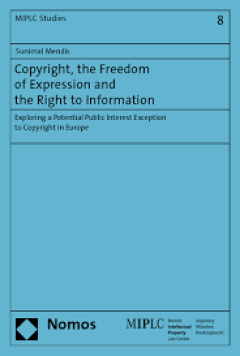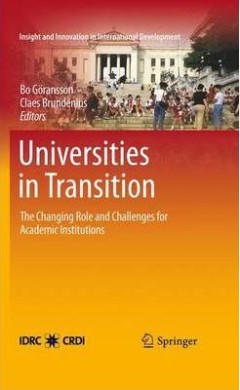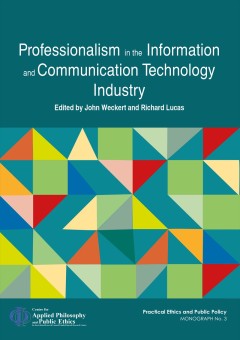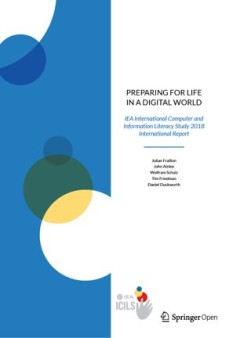Filter by

Australian politics in a digital age
Information and communications technologies are increasingly important in the Australian political landscape. From the adoption of new forms of electoral campaigning to the use of networking technology to organise social movements, media technology has the potential to radically change the way politics is conducted and experienced in this country. The first comprehensive volume on the impact of…
- Edition
- -
- ISBN/ISSN
- 9781922144409
- Collation
- xviii, 268 p.
- Series Title
- -
- Call Number
- 303.48330994 PET a

Copyright, the Freedom of Expression and the Right to Information
With the advent of a global community, which draws its sustenance from the unfettered communication of ideas and expression, it is worth reflecting on the role of copyright law and considering whether the existing legal frameworks of copyright in Europe have the capacity to meet the changing needs of a new generation who have given a whole new meaning to the term ""creativity"" and to that of "…
- Edition
- Edition 2011, Volume 8
- ISBN/ISSN
- 9783845231266
- Collation
- 84 p.
- Series Title
- -
- Call Number
- 340 MEN c

Perpustakaan khusus vs covid 19 : inovasi dan kreasi layanan pada masa pandemi
Pandemi Covid-19 yang terjadi sejak pertengahan Maret 2020 berdampak cukup besar terhadap pengelolaan perpustakaan. Di awal pandemi, hampir semua layanan tatap muka perpustakaan harus ditutup. Lalu, bagaimana perpustakaan berinovasi agar tetap memberikan layanan yang terbaik pada masa-masa tersebut? . Buku ini berisi cerita para pustakawan dan pengelola perpustakaan di 17 perpustakaan kemente…
- Edition
- -
- ISBN/ISSN
- 9786233130882
- Collation
- x, 199p. : ill.
- Series Title
- -
- Call Number
- 027.609598 TIM p

Universitas in transition: the changing role and challenges for academic inst…
Globalization, the information age, and the rise of the knowledge-based economy are significantly transforming the way we acquire, disseminate, and transform knowledge. And, as a result, knowledge production is becoming closer and more directly linked to economic competitiveness. This evolution is also putting new and urgent demands on academic institutions to adjust to the changing needs of so…
- Edition
- -
- ISBN/ISSN
- 9781552505052
- Collation
- viii, 366 p.
- Series Title
- -
- Call Number
- 378.013 UNI u

Enabling openness: the future of the information society in Latin America and…
In recent years, the Internet and other network technologies have emerged as a central issue for development in Latin America and the Caribbean. They have shown their potential to increase productivity and economic competitiveness, to create new ways to deliver education and health services, and to be driving forces for the modernization of the provision of public services. With an introduct…
- Edition
- -
- ISBN/ISSN
- 9781552505793
- Collation
- vii, 200 p.
- Series Title
- -
- Call Number
- 303.4833068 GIR e

Data visualization in society
Today we are witnessing an increased use of data visualization in society. Across domains such as work, education and the news, various forms of graphs, charts and maps are used to explain, convince and tell stories. In an era in which more and more data are produced and circulated digitally, and digital tools make visualization production increasingly accessible, it is important to study the c…
- Edition
- -
- ISBN/ISSN
- 9789463722902
- Collation
- -
- Series Title
- -
- Call Number
- 001.4226 DAT d

How the world changed social media
How the World Changed Social Media is the first book in Why We Post, a book series that investigates the findings of nine anthropologists who each spent 15 months living in communities across the world. This book offers a comparative analysis summarising the results of the research and exploring the impact of social media on politics and gender, education and commerce. What is the result of the…
- Edition
- -
- ISBN/ISSN
- 9781910634493
- Collation
- XXIV, 262 p.
- Series Title
- Why We Post
- Call Number
- 302.23 HOW h

Professionalism in the information and communication technology industry
Professionalism is arguably more important in some occupations than in others. It is vital in some because of the life and death decisions that must be made, for example in medicine. In others the rapidly changing nature of the occupation makes efficient regulation difficult and so the professional behaviour of the practitioners is central to the good functioning of that occupation. The core id…
- Edition
- -
- ISBN/ISSN
- 9781922144447
- Collation
- vii, 372p. : ill.
- Series Title
- -
- Call Number
- 174.93034833 WEC p

Ethical programs : hospitality and the rhetorics of software
Living in a networked world means never really getting to decide in any thoroughgoing way who or what enters your “space” (your laptop, your iPhone, your thermostat . . . your home). With this as a basic frame-of-reference, James J. Brown’s Ethical Programs examines and explores the rhetorical potential and problems of a hospitality ethos suited to a new era of hosts and guests. Brown rea…
- Edition
- -
- ISBN/ISSN
- 9780472072736
- Collation
- x, 217p. : ill.
- Series Title
- -
- Call Number
- 174.9005 BRO e

Preparing for life in a digital world IEA : international computer and inform…
This Open Access book summarizes the key findings from the second cycle of IEA’s International Computer and Information Literacy Study (ICILS), conducted in 2018. ICILS seeks to establish how well schools around the globe are responding to the need to provide young people with the necessary digital participatory competencies. Effective use of information and communication technologies (ICT) i…
- Edition
- -
- ISBN/ISSN
- 9783030387815
- Collation
- XXII, 297 p.
- Series Title
- -
- Call Number
- 302.209 PRE p
 Computer Science, Information & General Works
Computer Science, Information & General Works  Philosophy & Psychology
Philosophy & Psychology  Religion
Religion  Social Sciences
Social Sciences  Language
Language  Pure Science
Pure Science  Applied Sciences
Applied Sciences  Art & Recreation
Art & Recreation  Literature
Literature  History & Geography
History & Geography